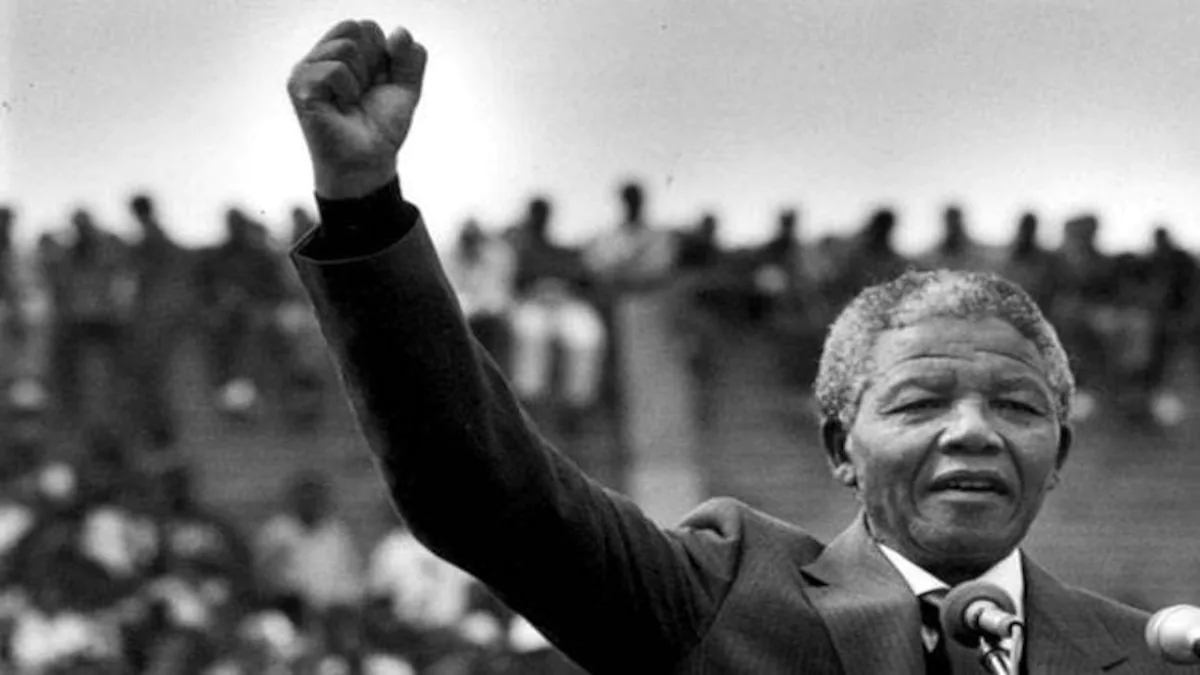
“I Am Prepared to Die” is the name given to the three-hour speech given by Nelson Mandela on 20 April 1964 from the dock of the defendant at the Rivonia Trial. The speech is so titled because it ends with the words “it is an ideal for which I am prepared to die”.
April 20, 1964, saw Nelson Mandela, a 45-year-old member of the anti-apartheid movement, testify at the Pretoria courtroom as part of the Rivonia Trial. In his defence statement, the young lawyer declared that freedom and equality were the ideals for which he was prepared to die.
This speech became the rallying cry of the masses that shook the apartheid regime and set Mandela on the path to becoming the country’s first democratically elected president 30 years later.
Apartheid
Apartheid was the most extreme kind of racism that the world witnessed. It started from 1652 when the Dutch East India Company landed in the Cape of Good Hope and established a trading colony in what is now known as Cape Town. This was a rest stop for ships travelling between Europe and India.
The Dutch colonists went to war with the natives to establish their control. This ultimately led to the creation of a new set of laws to enslave the aboriginals. When the British took over the Cape colony, the descendants of the Dutch settlers trekked inland and developed their own language, culture, and customs eventually becoming the Afrikaners, the first white tribe of South Africa.
The fall of the British Empire saw the Afrikaners claim South Africa for themselves. But to sustain their supremacy over the country’s restless black majority, they needed new stringent laws. A formal commission was set up and an expedition was sent to different parts of the world including the Netherlands, Australia, and America with the purpose of studying institutionalised racism and its application. The government used this knowledge to build the most advanced version of racial oppression ever created.
Apartheid (means ‘apartness in African language) was a police state, a system of surveillance meant to keep the black people under control. This policy was in place for nearly 50 years.
The art of persuasion
Most leaders are known for their rhetoric. Philosopher Aristotle lays emphasis on the art of persuasion through speech in his treatise on the subject. According to the philosopher, the true means of introducing change in a society can only be accomplished by deliberative rhetoric. A deliberative speech focusses on the future rather than the past or the present. Here the speakers present their audience with a possible future and try to encourage them to lend their support to their vision.
What cements the appeal of this kind of persuasive speech is the use of ethos (credibility), logos (logic and reason), and pathos (emotional connect), and Mandela’s speech is an excellent example of this.
The appeal of Mandela
1 am the First Accused I hold a Bachelor’s Degree in Arts and practised as an attorney in Johannesburg for several years in partnership with Oliver Tambo. I am a convicted prisoner serving five years for leaving the country without a permit and for inciting people to go on strike at the end of May 1961. (An excerpt from the speech “I am prepared to die”) By beginning his defence statement with an announcement of his educational qualification and contribution to the anti-apartheid movement, Mandela established his credibility. He took full responsibility for his actions and the disruption they led to. His demeanour exuded confidence in himself and in the cause he was fighting for.
“…The complaint of Africans, however, is not only that they are poor and whites are rich, but that the laws which are made by the whites are designed to preserve this situation” (An excerpt from the speech “I am prepared to die”)
This part of the oration justified the need for a movement against a government that used racial segregation as a weapon to divide society. His sincere dedication to the struggle of the African people and his willingness to sacrifice himself for the fundamental principles of freedom and equality made him a man of mythical proportions.
“I have fought against white domination, and I have fought against black domination. I have cherished the ideal of a democratic and free society in which all persons live together in harmony and with equal opportunities It is an ideal which I hope to live for and to achieve. But if needs be, it is an ideal for which I am prepared to die. (An excerpt from the speech 7 am prepared to die”)
DID YOU KNOW?
- Mandela’s birth name was Rolihlahla Mandela. The name Nelson was given to him by his primary school teacher.
- In August 1952, Mandela and Oliver Tambo established South Africa’s first black law firm, Mandela and Tambo.
- July 18 is celebrated as Nelson Mandela International Day each year.
- As the first black president of South Africa, Mandela took it upon himself to unite the country that had been divided along racial lines. According to him, sports like rugby promoted unity and fostered national pride.
Picture Credit : Google




